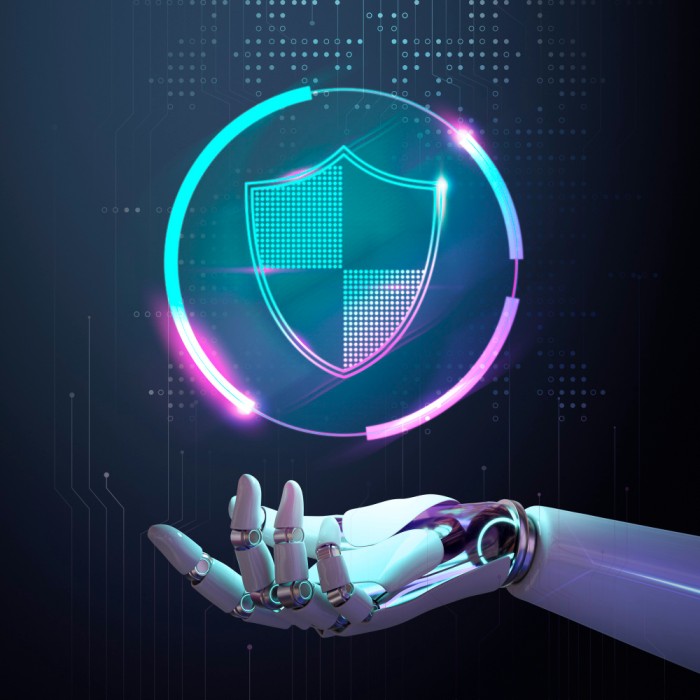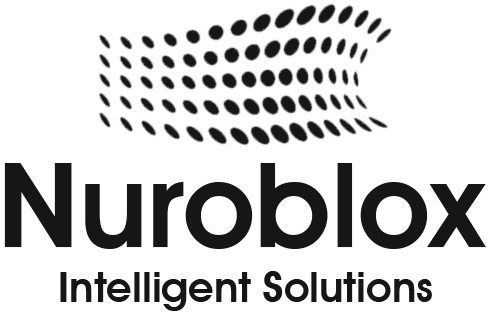Secure AI Agents for Business- Automate Without Risk
As businesses embrace AI driven automation, intelligent agents are becoming essential for streamlining workflows and reducing manual effort. But with increased automation comes increased responsibility, especially when sensitive data and critical operations are involved.
Secure AI agents are the next evolution of enterprise automation- they not only perform complex tasks but also ensure that privacy, compliance, and data protection are built into every step.
In this blog, we’ll look at how secure AI agents work, why they’re important for businesses that handle sensitive data, and how companies can use them safely without giving up innovation.
What Makes an AI Agent Secure?

A secure AI agent does more than just automate tasks; it protects your business data, respects privacy, and ensures compliance with industry standards. In a world where automation often touches sensitive workflows, security isn’t optional; it’s foundational.
Here are the key traits that define a secure AI agent-
1. Data Privacy by Design
Secure AI agents are built with strict data handling policies from the start. They minimize data exposure by-
- Processing only the information they need
- Avoiding third party data sharing
- Respecting regional data laws (e.g., GDPR, HIPAA)
2. End to End Encryption
All data, whether at rest or in motion, is protected using strong encryption protocols. This prevents unauthorized access during storage, transmission, or processing.
3. Role Based Access Control (RBAC)
Not every user or system needs the same level of access. Secure AI agents follow strict access policies to ensure that only authorized users and systems can trigger or modify tasks.
4. Auditability and Transparency
Businesses must understand how AI agents make decisions. Secure agents provide clear logs, decision paths, and audit trails, making it easier to review, explain, and verify their actions.
5. Deployment Flexibility (Private/On Prem Options)
Many organizations prefer to keep AI workflows within their own infrastructure. Secure AI agents offer deployment models that support private cloud, on premise, or hybrid setups for greater control.
6. Compliance Alignment
Secure AI agents are designed to align with industry regulations and certifications such as-
- GDPR (General Data Protection Regulation)
- HIPAA (Health Insurance Portability and Accountability Act)
- SOC 2, ISO 27001, and more
7. Safe Autonomy with Human Oversight
Even the most advanced AI agents must have guardrails. Secure agents offer-
- Manual review triggers
- Confidence thresholds
- Human in the loop checkpoints for critical actions
In short, a secure AI agent doesn’t just get work done, it gets work done responsibly. It ensures that as businesses scale automation, they don’t compromise the integrity, safety, or trust of their systems and data.
Risks of Unsecured AI Automation
AI agents are powerful tools, but without proper safeguards, they can introduce more problems than they solve. When deployed without strong security, governance, and oversight, AI automation can expose sensitive data, violate regulations, and damage operational trust. These risks are especially critical in industries like finance, healthcare, and legal services, where data sensitivity and compliance are non negotiable.
Here are the most common risks businesses face with unsecured AI automation –
Data Breaches and Exposure
- Insecure data handling can lead to leaks of personal, financial, or proprietary information.
- Lack of encryption or poorly managed access permissions increases the risk of unauthorized access.
Compliance and Legal Violations
AI agents that store or transmit sensitive data without consent may breach regulations like-
- GDPR (General Data Protection Regulation)
- HIPAA (Health Insurance Portability and Accountability Act)
- SOC 2 and ISO 27001 standards
- Fines, audits, and reputational harm often follow these violations.
Unexplainable or Biased Outcomes
- If AI logic isn’t transparent or auditable, decisions can be-
- Difficult to trace
- Ethically questionable
- Biased due to flawed training data
Unauthorized Use or Abuse
Without role based access control (RBAC), AI agents may be-
- Triggered by the wrong users
- Exploited to make system level changes
- Used to bypass approval workflows
Automation Errors at Scale
Small mistakes can escalate quickly when automated, such as-
- Sending incorrect emails to customers
- Processing financial transactions without proper checks
- Modifying sensitive records
Lack of Auditability and Oversight
If AI agent actions are not logged or monitored-
- It’s difficult to investigate incidents
- Root causes remain unclear
- Accountability is lost
Without robust security, AI agents can become a threat vector instead of a productivity booster. That’s why building privacy first, secure by design automation is critical, especially for enterprises handling sensitive operations and customer data.
Best Practices for Deploying Secure AI Agents
To maximize the benefits of AI automation while minimizing risk, businesses must prioritize security, compliance, and governance from the start. Deploying secure AI agents isn’t just about choosing the right technology; it’s about putting the right policies, controls, and frameworks in place to ensure responsible and safe automation.
Here are the best practices every enterprise should follow when deploying secure AI agents-
1. Prioritize Data Privacy and Compliance
- Use AI platforms that support encryption, anonymization, and on prem or private cloud deployments.
- Ensure agents comply with applicable regulations (GDPR, HIPAA, SOC 2, etc.).
- Classify data and define which types can and cannot be processed by AI agents.
2. Implement Role Based Access Controls (RBAC)
- Restrict who can trigger, configure, or modify AI agent workflows.
- Separate administrative access from user level access to prevent misuse.
- Regularly audit user roles and permissions.
3. Maintain Transparency and Audit Trails
- Choose AI agents that log every action and decision made.
- Ensure logs are accessible for audits, investigations, and compliance reviews.
- Integrate alerts for unexpected behaviors or access anomalies.
4. Start Small, Then Scale
- Begin with low risk, high reward use cases (e.g., document routing, internal notifications).
- Test workflows in sandboxed environments before full deployment.
- Monitor early results and gradually expand across teams or departments.
5. Align with IT and Security Teams
- Work closely with InfoSec and DevOps to ensure agents fit into existing security frameworks.
- Perform regular vulnerability assessments on deployed agents and connected systems.
- Use secure API gateways for integrations with critical applications.
6. Monitor and Update Agents Regularly
- Keep AI models and workflow logic up to date to reflect changes in business rules or regulations.
- Set up performance monitoring to detect and respond to anomalies in real time.
- Decommission unused agents to reduce exposure.
7. Keep a Human in the Loop
- For high risk or sensitive tasks, implement approval flows or manual review checkpoints.
- Ensure employees can override, pause, or intervene in automated processes when needed.
- Balance automation with human accountability.
Secure deployment of AI agents is not a one time task, it’s an ongoing strategy. By following these best practices, businesses can confidently automate operations without compromising privacy, trust, or control. The result is faster, safer, and smarter workflows that scale securely with your business.
Future Outlook- Why Security Will Define AI Adoption
As AI becomes more embedded in business operations, security is no longer a secondary concern; it’s the foundation of trust and scale. The next phase of AI adoption will be shaped not just by how intelligent agents are, but by how securely they operate in real world, high stakes environments.
Here’s why security will be the defining factor in the future of AI automation-
1. Rising Regulatory Pressure
Governments and regulatory bodies worldwide are implementing stricter AI regulations to safeguard user privacy, data sovereignty, and algorithmic accountability. From the EU AI Act to U.S. state level data laws, enterprises will be forced to prove-
- Where data is stored and processed
- How AI agents make decisions
- What safeguards are in place
Security first AI agents will be critical to meeting these legal obligations.
2. Increasing Demand for Responsible AI
Stakeholders, from customers to investors, are demanding more transparency in how businesses use AI. Secure AI agents help build-
- Trust with customers by protecting their data
- Credibility with partners and regulators
- Sustainability in long term AI operations
3. AI Driven Threats Require AI Driven Defenses
As cyber threats become more sophisticated (and even AI powered), organizations need automation that is not only intelligent but also resilient. AI agents must-
- Detect and respond to anomalies
- Operate within protected environments
- Be shielded from misuse and manipulation
4. Enterprise Scale AI Needs Enterprise Grade Security
As companies scale their AI usage across departments, regions, and systems, the complexity increases. Without a strong security framework-
- Integration gaps emerge
- Sensitive workflows become vulnerable
- Compliance becomes unmanageable
Security will become a key enabler of scalable, enterprise wide AI deployment.
5. Privacy as a Competitive Advantage
Businesses that invest in privacy first AI solutions will not only avoid penalties, they’ll differentiate themselves in the market. Customers and partners will prefer vendors who can guarantee secure automation with full control and visibility.
The future of AI in business isn’t just about performance, it’s about trust, compliance, and control. Organizations that prioritize secure AI agents today will be the ones leading the way tomorrow, confidently automating with both intelligence and integrity.
Conclusion
AI agents are rapidly becoming integral to modern business operations, automating tasks, accelerating workflows, and driving efficiency. But in an era of growing cybersecurity threats, regulatory scrutiny, and sensitive data flows, automation without security is simply not an option.
Secure AI agents offer a path forward- enabling businesses to automate at scale while maintaining control, privacy, and compliance. By focusing on security first design, robust governance, and responsible deployment, organizations can unlock the full potential of AI without exposing themselves to unnecessary risks.
As the adoption of AI continues to grow, the companies that lead will be those that automate intelligently and securely. The future of AI isn’t just fast, it’s safe, trusted, and built for long term success.


